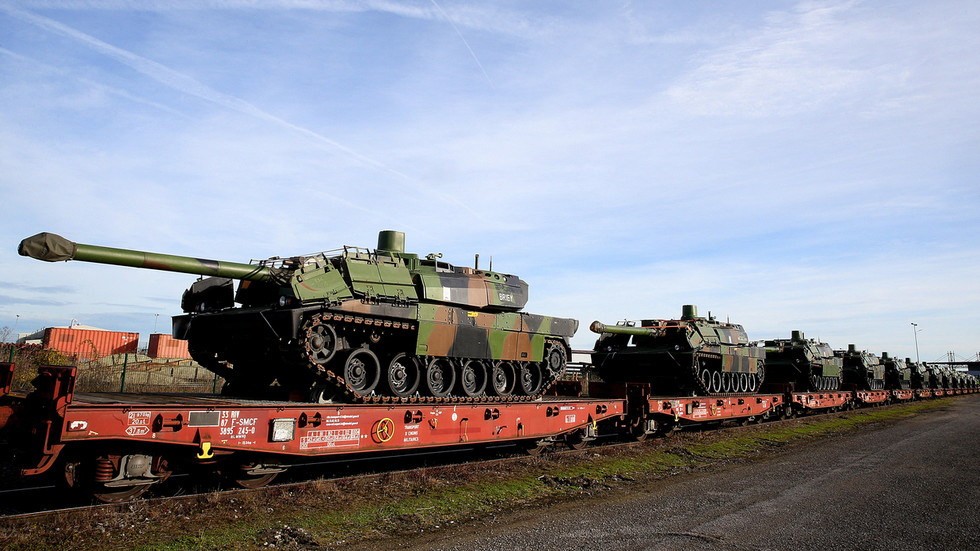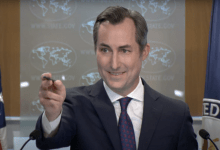
The bloc should find a way to quickly move resources to the East, says the top diplomat
French Main battle tanks (MBT) Leclerc loaded on a train at the military base of Mourmelon-le-Grand, north-east of France. © FRANCOIS NASCIMBENI / AFP
The EU Commission and top diplomat Josep Borrell have proposed a new Military Mobility action plan aimed at improving the bloc’s ability to quickly transfer large amounts of military equipment and troops to its Eastern borders.
Borrell announced the plan on Thursday during an EU Commission briefing. He stated that the bloc must adapt its defense policies in response to the new security climate in Europe as “the war is back to our borders” and Russia is “undermining peace and the international rules-based system.”
Borrell pointed out that there was currently no specialized rail or road infrastructure to support the transfer of large amounts of military resources from one side of the bloc to the other and noted that adapting Europe’s mobility system was “critical” to the EU’s defenses.
The diplomat specified that the bloc should improve “the capacity and ability to move troops and equipment quickly from one side of the EU to the other side of the EU, from the West to the East mainly. To our external border but also beyond our external borders when we deploy our military missions around the world.”
Read more
As part of this Military Mobility action, Borrell proposed constructing bridges, tunnels, and trains which would be able to transport the EU’s military capacities, noting that the ongoing military conflict between Russia and Ukraine has “clearly shown that this matters a lot.”
The diplomat also emphasized the need to improve the EU’s cooperation with NATO and countries like Ukraine, Moldova, and the western Balkans and be ready to deploy forces in these regions.
The European Commission has set aside some €1.69 billion ($1.71 billion) for this project until 2027.
Meanwhile, the EU has also laid out plans to offer Ukraine an €18 billion ($18.3 billion) package of loans to get the country through next year, but has insisted that Kiev must pay the bloc back within 35 years. That’s after the EU had already given Ukraine €4.2 billion ($4.27 billion) in loans this year as well as sent over €2 billion ($2.03 billion) worth of military aid.
Russian Foreign Minister Sergey Lavrov had previously accused the EU of morphing into a military organization acting in the interests of the US and NATO. Moscow has repeatedly warned the European bloc against committing economic self-immolation by fueling the conflict in Ukraine on the orders of Washington.




